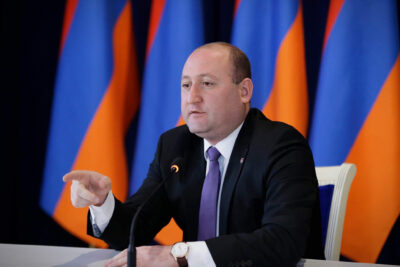By Edmond Azadian
October 10 marked a historic watershed in Armenian and Turkish relations with the signing of the controversial protocols in Zurich, Switzerland. The pictures at the signing ceremony said as much — if not more — than the contents of the papers themselves. Besides the foreign ministers of the signatory countries, present were the heads of the foreign ministries of the host country, Switzerland, which brokered the deal, as well as the foreign ministers of the major world powers — the US, Russia, France and the European Union.
That picture symbolized the convergence of the interests of those powers, which seldom happens in recent diplomatic history. Ironically, the protocols reflected more the interests of those countries than the interests of the signatories themselves.
For the US and the European Union, the Caucasus region has become a new battleground to grab energy sources, after the collapse of the Soviet Union. For Moscow, it continues to be a losing battle to retain its influence in “near abroad.” Turkey and Iran have tried to fill in the power vacuum, each with the help of a major power. The three mini republics in the region were only pawns in this maze of interests and power struggle. They certainly had their own priorities, which could be achieved only in consonance with the interests of one or other major power.
The predictions that Turkey would cease to be a major power player in the region after the demise of the Cold War turned out to be only wishful thinking, as Ankara came out stronger and more dominant, thanks to its military and political buildup during the Cold War years. Turkey mended its relations with Russia faster than the West was able to do. That placed Armenia between a rock and a hard place.
The three Caucasian republics had very limited space to maneuver. Georgia threw in its lot with NATO and the West, with dire consequences. Azerbaijan kept its balance between the two camps under Turkey’s tutelage. Armenia’s “complementarism” ran its course, as Russia worked out a modus vivendi with Turkey and with the West.









